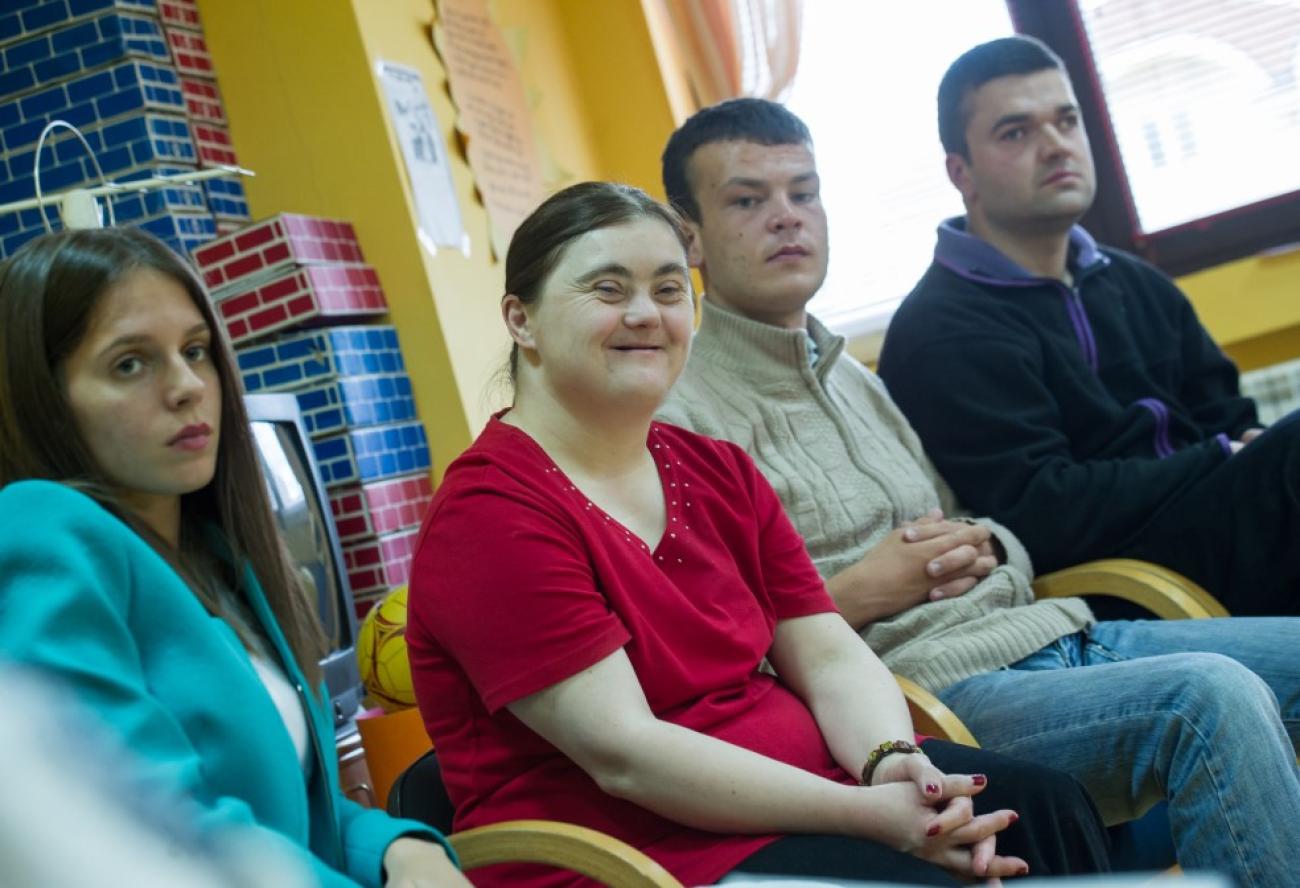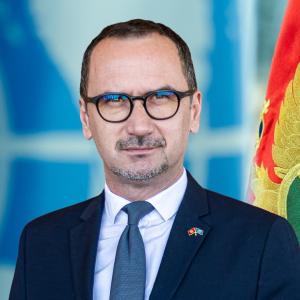Bringing citizens on board

The country employed a 3-step approach in identifying people’s involvement in monitoring implementation of policies and laws.
THE CONTEXT
Do the people of Montenegro participate in decision-making processes as much as they would like to? Do they have mechanisms for monitoring the fulfilment of commitments the state pledged for? Is there a possibility of greater involvement of citizens in such processes?
These questions were at the heart of a joint initiative of the UN Montenegro and national partners.,
“It is basically the process, means and tolls by which citizens monitor the implementation of governments’ and other decision-makers’ commitments, having the opportunity to provide their opinions and requests and to receive a feedback,”
Ana Dautović, UN Coordination Office in Montenegro
“The process aims to explore possibilities of greater citizens' participation in monitoring the implementation of policies and to get suggestions from citizens on how to establish more efficient ways of communicating with the government and monitoring its work,” Dautović said.
THE PROCESS
The country employed a 3-step approach in identifying people’s involvement in monitoring implementation of policies and laws and possibilities of their involvement: 1) mapping, 2) accountability check, and 3) testing of a concrete mechanism.
More than 4000 people of Montenegro were mobilised through different phases of the process.
MAPPING PHASE: The first stage scanned existing mechanisms of citizens' involvement in decision-making processes, unveiled that the citizens and the government of Montenegro have available a wide array of formal and informal mechanisms for policy monitoring, particularly so at the local level. However, most of the existing mechanisms, particularly the local-level ones, are non-functional.
“The existing participatory monitoring mechanisms are not equally available to all segments of the population in Montenegro. In particular, this applies to the poor population,”
Lidija Brnović, the author of the Mapping Report
ACCOUNTABILITY CHECK PHASE: The process has allowed for a thorough ‘accountability check’ on existing forums for citizen participation to improve their usage. Through a direct communication, Focus Groups and Online Questionnaire, people shared their opinions. The voice of people of Montenegro was pursued through a broad coalition of more than 20 national partners including the civil society and national institutions. . Different vulnerable groups also took part in the process including displaced persons, elderly population, children, Roma, women entrepreneurs, residents of remote mountainous areas and young people with disabilities.
Through a dynamic dialogue, people recognised concrete barriers for their greater involvement in decision making, such as lack of information, unclear procedures, people’s passiveness, insufficient and undeveloped channels of communications with decision makers. They also recommended concrete aspects which would lead to greater participation, such as: greater openness of decision makers, de-politicization, new forms of dialogue with authorities, greater awareness of existing tools for participation and about the procedures to use them, involvement of vulnerable groups.
The findings showed that a special attention should be given to Roma women who, unlike their male counterparts, have not even heard of most of the tools that could help them present their views and raise issues, and who, apart from oral and occasional written comments, have never used any other participatory tool.
A positive example of the level of information and the use of tools available is seen among women entrepreneurs many of whom have used petitions, approaching the Ombudsman, public discussions, approaching mayors and their offices.
TESTING: In order to test potentials and shortcomings, Montenegro has undertaken the testing of one specific mechanism in the course of seven days.
The testing mechanism was focused on communication between citizens and decision makers via specially designed web portal on the topic of employment in tourism, based on the country’s efforts to reduce unemployment within the Millennium Development Goal 1, while the tourism was chosen as the main development potential of Montenegro.
The portal was established in cooperation with the Ministry of Sustainable Development and Tourism which was in charge of providing direct answers to citizens via portal and within 48 hours. In order to bring the mechanism closer to as many people as possible, the portal was advertised on three most influential news web-portals and on the social media resulting in a solid citizen’s engagement, while simultaneously unveiling concrete pros and cons of the process.
“We clearly recognize the advantage of such a portal since it enables a fast and simple method of communication with citizens in real time. However, in order to achieve this, it is necessary for some other steps to be improved, primarily the improvement of administrative capacities, which might mean the establishment of a special sector/office that would be entrusted with this form of communication with citizens”
Jelena Mugoša from the Directorate for Tourism Development and Standard
Some of the results are: the power of social media should not be neglected, the online mechanisms should be neat and with simple designs, all available channels, off-line and on-line, should be mobilised in order to provide a chance for everyone to take part,, strategic communication plan needs to be developed along with establishment of the mechanism.
THE BACKGROUND
The Participatory Monitoring for Accountability is the second phase of Post-2015 Consultations. It is a UN driven initiative aimed at involving citizens in defining future development priorities, which will follow up on the Millennium Development Goals. The initiative, which is particularly focused on hearing the voice of marginalized groups, included so far more than 2.5 million people from all around the world.
Within the first phase of Post-2015 consultations in 2013, Montenegro mobilised more than 8000 people, or 1.3% of its population, to directly take part in discussion on the future they want. They identified eight development priorities including employment, health, education, environmental protection, values, building infrastructure, equality and fight against corruption.
With more than 8000 people in the first round and 4000 in the second phase, the Post-2015 National Consultations mobilised more than 12000 people of Montenegro in the process of desiging future development priorities.
Written by


















